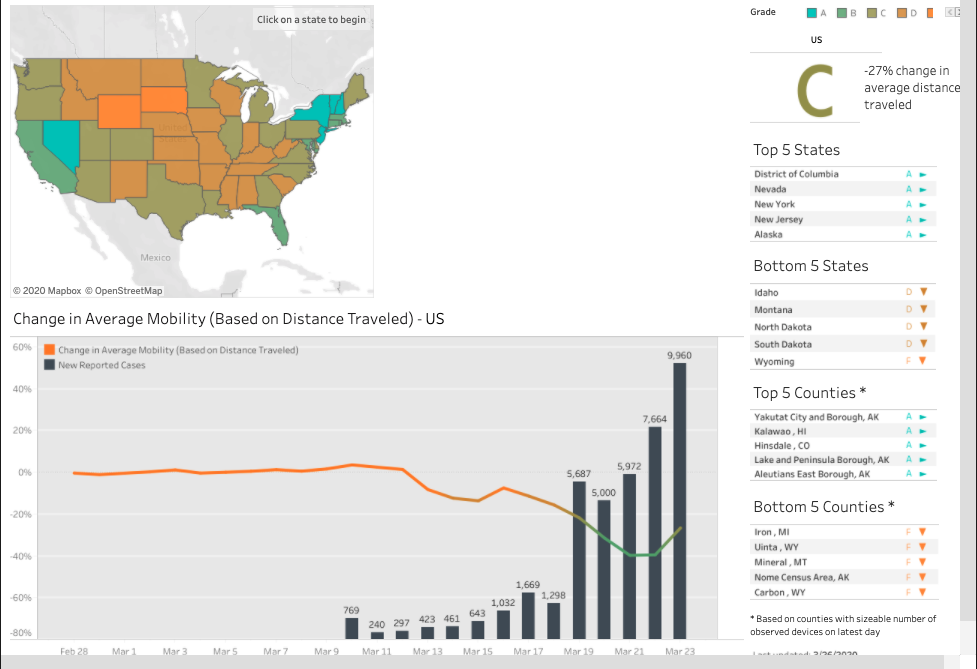How Governments Are Deploying Big Data To Enforce COVID-19 Quarantines
This week a technology startup called Unacast launched a new app called “Social Distancing Scoreboard,” which tracks the GPS location of smartphones and grades geographical regions, such as a town, county, and or even a state, on how well residents in those areas are abiding by the government-enforced social distancing rules. The app creates an index, ranked from A to F, for whether people are staying home or not.
Comparing the nation’s mass movements between February 28 to March 23 – virus cases started to rise and local governments across the country began to implement “shelter in place” public health orders, which by mid-month, changes in the average mobility for Americans started to slope downwards. As of March 23, the app ranked the US with a “C,” detailing how many people in the US are ignoring calls by the federal and state governments to stay home amid community spreading.
As of March 23, the top five states where citizens were practicing the best social distancing were District of Colombia, Nevada, New York, New Jersey, and Alaska. The bottom five states were Idaho, Montana, North Dakota, South Dakota, and Wyoming.
On a state and county level, Maryland earned a “B” with much of its counties surrounding Washington, DC, and central counties receiving good marks on Monday as many stayed home. However, in Western Maryland, it was life as usual as many seemingly did not care about the virus crisis.
Unacast is just another example of how technology is being deployed as mass surveillance tools to combat the virus.
Several other examples of companies and governments extracting data from citizens for surveillance purposes to support quarantines have been though monitoring social media posts and facial recognition databases.
Ghost Data, a big data analysis firm, collected half a million Instagram posts in March, mainly from hard-hit virus regions in Italy that are in lockdown. The company was able to run facial recognition software on all images to identify people who were violating the country’s quarantine orders.
Another technology company that has joined the effort to support big governments in their quest to enforce full lockdowns with high-tech tools is telecommunications firm Vodafone. The company is giving European governments heat maps of location data, to track mass gatherings.
The World Health Organization has widely supported the actions by governments to tap technology companies to unleash mass surveillance programs to fight the virus. Monitoring the populace through invasive technology tools will erode whatever freedoms people of the West have left and risk ushering in a more permeant dystopian surveillance system like China’s.
Tyler Durden
Fri, 03/27/2020 – 22:25

